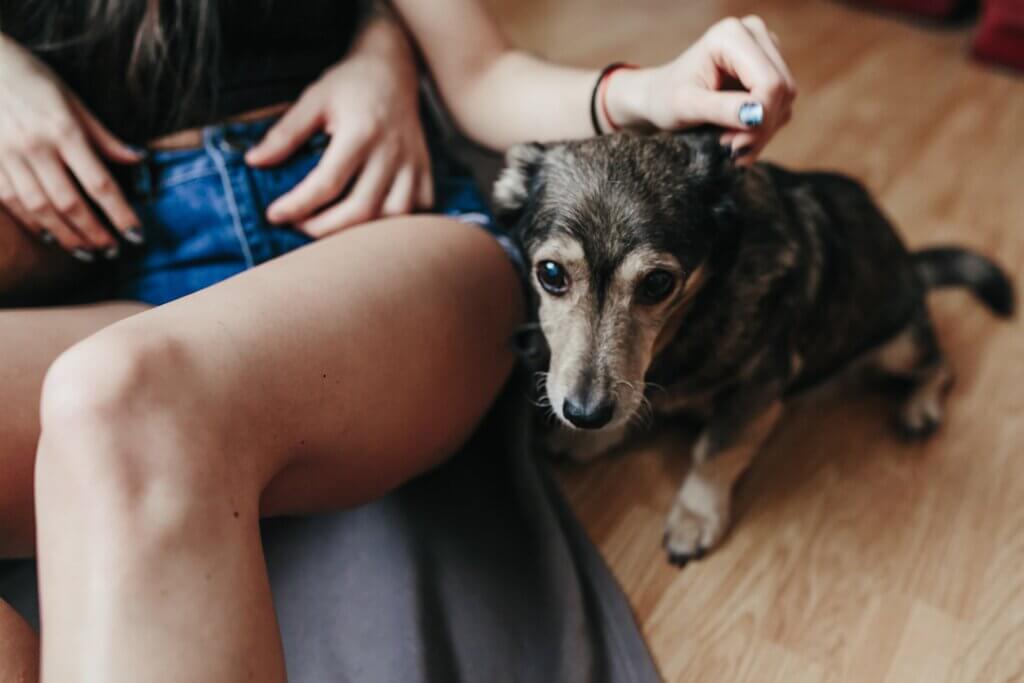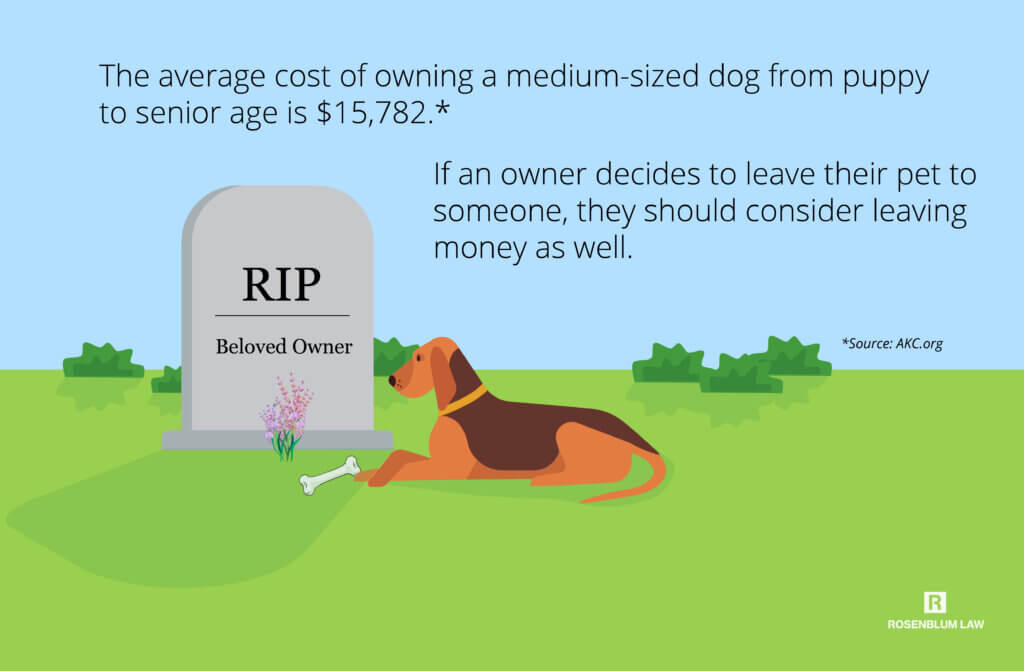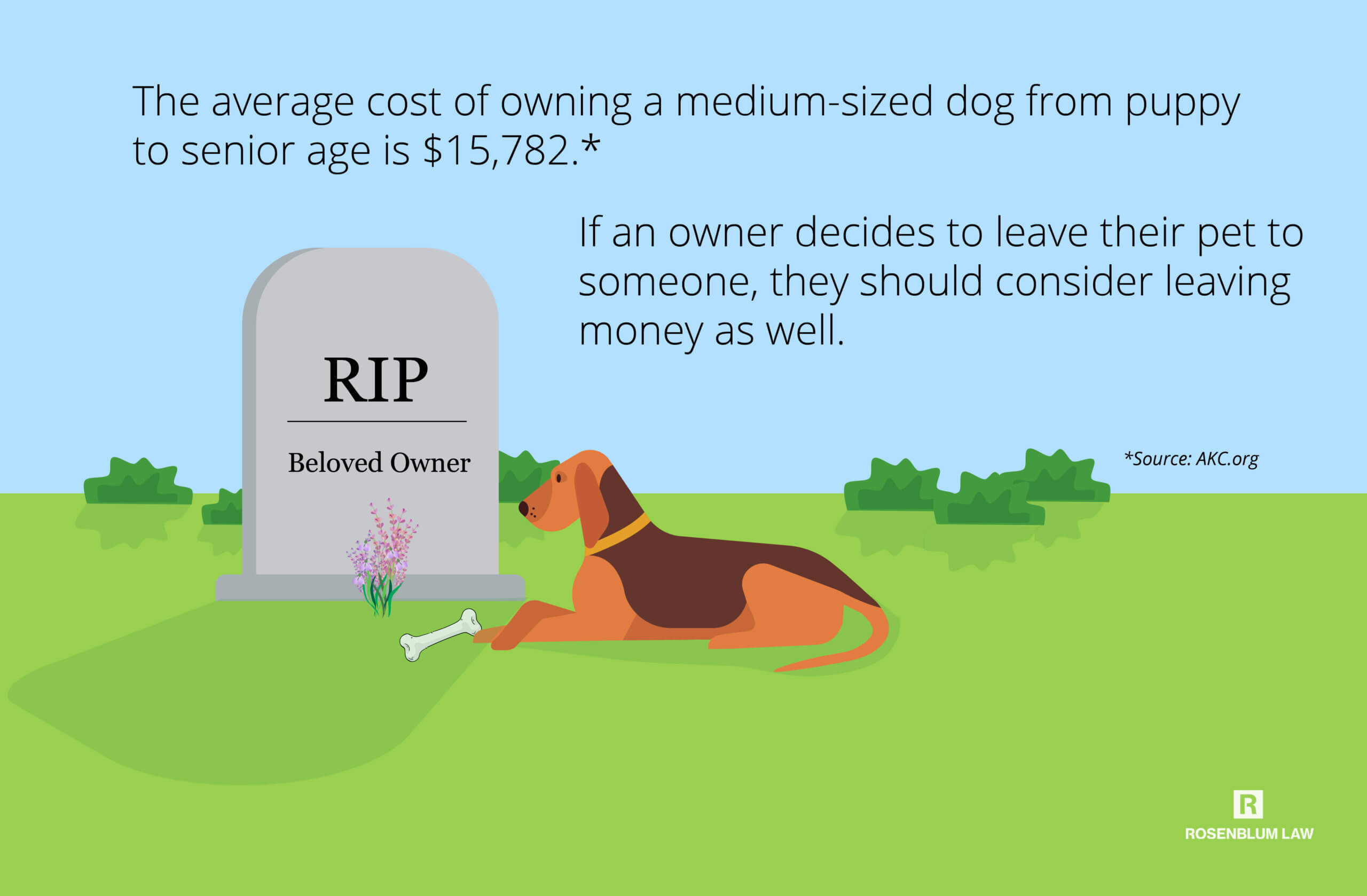Written By:
 Scott Glatstian
Scott Glatstian
Your Dedicated & Trusted Legal Team
3 Generations & 100+ Years of Combined Legal Experience

Part of every good estate plan is determining who will care for loved ones if someone passes away and is no longer able to do so themself. The last will and testament is the place to name guardians for minor children and anyone else for whom someone has a custodial responsibility. But what about our pets?
Pets are not considered people in the law, and so the last will cannot name a guardian to care for them. If the issue is not addressed, a person’s beloved pet may end up in a shelter after their passing. Luckily, there are methods of preparing for a pet’s care after one’s death. Read on to find out how you can create an estate plan that ensures your pet will be cared for regardless of whether you are still around to be the one taking care of them.
What Happens if the Pet Is Not Mentioned in the Will?
If a pet is not specifically listed as a property with a beneficiary in a last will and testament, it will be considered part of the “residuary estate,” which is a term that describes any remaining property in the estate after specific gifts have been distributed to named beneficiaries. So whoever is named as the recipient of the remainder of an estate, will be the one to receive the pet.
In some situations, this may result in the right person to care for the animal ending up as the one receiving them. However, there are no guarantees that the person who one thinks will care for the pet will always be in a position to do so. What happens if they lose their job and can no longer afford to keep the pet? What happens if that person is permanently injured in an accident or falls seriously ill? Ultimately, the pet may not be treated as the deceased owner would have wanted. Even worse, if the recipient of the pet cannot or does not want to care for them, the animal may end up in a shelter.
Ultimately, the pet may not be treated as the deceased owner would have wanted.
Let’s consider one example. Todd has been diagnosed with a terminal illness and has been given just months to live. Todd also has a 3-year-old Labrador named Gus. Todd believes that someone in his family will step up and take care of Gus after he dies. Todd passed away 3 months after his diagnosis. His will gave his entire estate to his children in equal parts, however, his pet was not specifically named in the will. Todd’s children live in different parts of the country and none of them are in a situation where they can take on the care of the animal. Sadly, Todd’s dog is surrendered to the local animal shelter.
Including a Pet in a Will
Although not a real story, we know that what happened to Gus actually happens more frequently than one might imagine. That’s why it’s vital to map out a specific plan for one’s pets in their estate plan. Pets are considered property of their owner in regard to a will. This means that pet owners can state specifically in their last will and testament who will be the beneficiary of their pet.
If a person decides to name their child as a beneficiary to all of their property, this will include any pets as well. It is important for the will writer to make sure that their child expresses that they are willing and able to take on this role. And, because that child’s financial or health circumstances may change from the date your will is created, you may need to update this designation.
Leave Money for the Pet
According to the American Kennel Club, the average cost of owning a medium-sized dog from puppy to senior age is $15,782, with the expenses rising as the dog ages. For this reason, if an owner decides to leave their pet to someone upon their death, they should consider leaving money to the beneficiary. This money can be used to cover vet bills, food, and other pet-related expenses. Yet while this may seem like an easy solution to ensure that one’s pet will be well cared for, how can the owner be sure that the money left will be used for the pet’s expenses?

Let’s revisit our example. Upon learning about his terminal illness, Todd talks with his niece, Alice, about taking care of Gus after he dies. Alice agrees to become the dog’s new owner – though she has little money of her own – so Todd leaves her both Gus and $10,000 for the pet’s care. A short while later, Alice’s car breaks down and she has no other choice but to use the money left by Todd to fix it. As a result, she can no longer afford to take care of Gus and surrenders him to the local animal shelter.
Guarantee Your Pet’s Care with a Trust
Willing money to a person who is the beneficiary of the pet is a great way to make sure the beneficiary is financially able to support the pet, but the example above demonstrates that this may not be enough to ensure that the animal will be properly cared for in the future. Fortunately, there is a legal solution that will guarantee that money is set aside and used only for the pet’s care: the testamentary trust. Unlike setting up a regular trust, which requires moving assets into a new entity in the present day, a testamentary trust is just a clause in the last will. It instructs the executor to create this trust only if certain conditions exist at the time of the will maker’s death. In this case, that condition would be the existence of a living pet at the time of pet owner’s death.
A testamentary trust can be set up to ensure that the money left behind will be used specifically for the expenses of the pet. When a person passes, their executor will be bound by the will to create a new trust that will be for the benefit of the pet. The trust can be specific in how the pet is cared for and how much money is distributed. For example, the beneficiary can withdraw money from the trust when needed until there is no more money left, or a certain amount of money can be automatically distributed to the beneficiary every year.
For example, if Todd had consulted an attorney prior to willing Gus and some money to Alice, he may have determined that a testamentary trust was the best option for his arrangement with his niece. Then, when Alice’s car broke down, she would have been unable to use the $10,000 to fix her car, or for any purpose not directly related to Gus’s care. The money would still have been available to care for Todd’s pet.
Start on an Estate Plan Today
If you’re unsure of how to plan for your pet’s care after you pass, speak with an experienced attorney at Rosenblum Law. We’ll listen to your needs and wishes, then outline your best options. Rosenblum Law is experienced in all areas of estate planning and we use innovative technology and a streamlined process to make estate planning easy for our clients. We also offer transparent flat-fee pricing on most of our estate plans and the initial consultation is always free. Call us today at 888-265-9021.

 Scott Glatstian
Scott Glatstian
About The Author
Scott is an Of Counsel Attorney for Rosenblum Law. He is a graduate of Syracuse University College of Law and received his undergraduate degree from Rutgers University.
Read MoreLatest from Our Blog



Editorial Standards
Rosenblum Law is committed to delivering informative content of the highest quality. All content is subject to our rigorous editorial standards for relevance, accuracy, sourcing, and objectivity. Everything is fact-checked by an editor and reviewed for legal soundness by one of our practicing attorneys prior to being published.
How to Cite Rosenblum Law’s Article
APA
Scott Glatstian (Jul 25, 2022). Estate Planning Is About Helping Your Family. Rosenblum Law Firm, https://rosenblumlaw.com/estate-planning-is-about-helping-your-family/
MLA
Scott Glatstian "Estate Planning Is About Helping Your Family". Rosenblum Law Firm, Jul 25, 2022. https://rosenblumlaw.com/estate-planning-is-about-helping-your-family/
